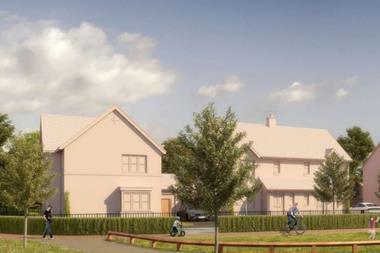It has been a whirlwind summer in the world of local government.

Councils up and down the country have rushed first to digest the implications of the Cities and Local Government Devolution Bill and then submit bids for new powers under the act in advance of the Treasury deadline.
The act, which offers the potential for councils to take ownership of budgets and policy on everything from housing to health, will have a major impact on property. Yet in the rush to submit bids to the Treasury, a bigger question has been somewhat overlooked.
Why are Whitehall and Westminster suddenly prepared to devolve power from central government? As is so often the case, economics lie at the heart of the answer.
Raising productivity is arguably the biggest economic challenge facing the UK. Transforming a low-wage recovery from the financial crisis to a sustainable high-wage economy requires investment in infrastructure, housing, health and education. Past experience has shown that investment needs to be integrated and is best managed at a local level.
In Birmingham, we have partnered with other local councils to create the West Midlands Combined Authority to submit our bid. But in advance of the new framework being finalised, we are already looking to realign how we work.
We recognise that the private sector is key. Under our Big City Plan we have looked to foster strong working relationships with developers as we feel that they are essential to driving prosperity. We understand that they are the ones risking capital and that they need to drive a return. However, a development scheme always sits in the context of a wider place. We see our role as fostering that sense of place and ensuring it supports private returns on individual schemes.
This partnership approach to driving prosperity is paying dividends: PwC ranks Birmingham as the sixth-best city in Europe for foreign direct investment, ahead of London. With the extra powers and budgets that would flow from a completed devolution deal, we would look to go further so that public and private investment together adds up to more than the sum of its parts.
Of course, defining what makes a place is often fluid. It is up to the property industry to develop and refine its understanding of how people interact with the buildings, spaces and services in their communities. Creating the right mix is a delicate balancing act.
In my experience, however, the right option always involves a mix. That’s why two years ago we took on responsibility for the city council’s housing and education infrastructure portfolios. The move gave us the ability to take an integrated approach when planning our communities, covering social infrastructure and private retail, office and housing development.
At a macro level, the benefits of such an approach should be transformative. By creating communities with quality housing, education and health facilities on the doorstep, and convenient and affordable transport infrastructure, we will attract businesses to the UK, opening up opportunities and driving prosperity. The news that HSBC is relocating 1,000 staff to Birmingham from London gives a hint of the kind of impact greater local powers could have.
Other sectors will also have a huge role to play in tackling low productivity in the UK. But they can only thrive if the property and planning industry provides the right environment for enterprise to flourish. By granting new powers and greater control over budgets, devolution should give our industry the tools it needs to
drive greater productivity.
Waheed Nazir is director of planning & regeneration at Birmingham City Council. He is also a judge for the inaugural Lambert Smith Hampton Enterprise Award
The LSH Enterprise Award seeks innovative ideas to make the most of the opportunity presented by devolution.





























No comments yet